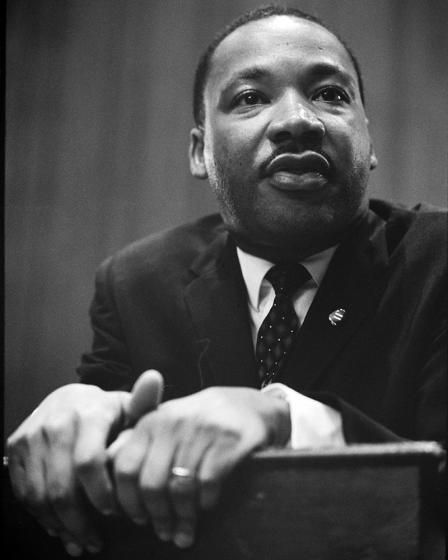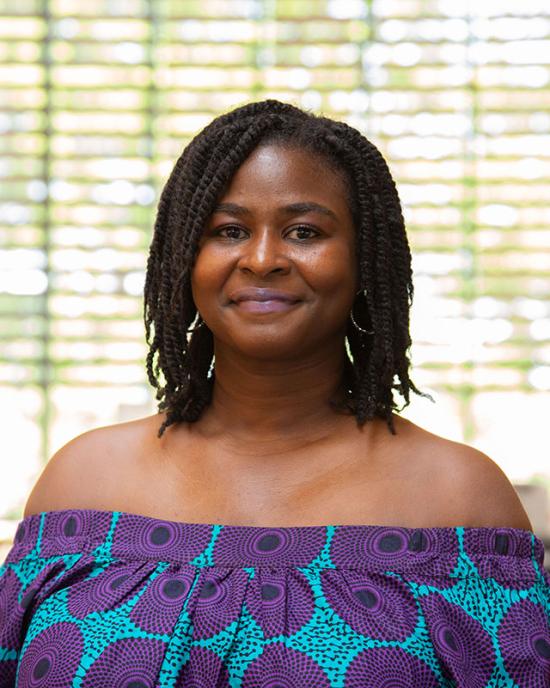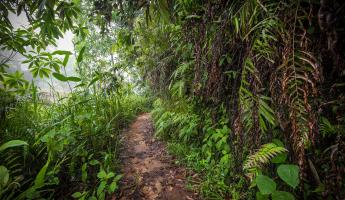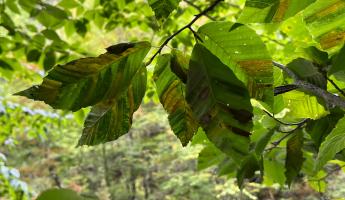

In an address held at YSE on Monday, January 23, Nyeema C. Harris, Knobloch Family Associate Professor of Wildlife and Land Conservation, paid tribute to Dr. Martin Luther King Jr.’s legacy of impactful systems change. Using the principals of ecology as an analogy, Harris detailed how King’s civil rights work made him an ecological engineer.
The address, hosted by the YSE Office of Diversity, Equity, and Inclusion, focused on King’s impact on systems.
“I think of Martin as an ecologist. Now that's probably an odd term. Usually he's thought of civil rights, activist, scholar, sociologist, preacher…. Ecology is about the study of interactions, how species interact with each other, species, and the environment. Martin says we are all tied together in a single garment of destiny, that the destinies of the Negro and the white man are tied together, and we are all caught in an inescapable network of mutuality. Those are all ecological principals to me,” Harris explained during the address held at Burke Auditorium.
Harris’s research explores carnivore behavior and movement, ecology and conservation in urban systems and national parks at a global scale with ongoing projects throughout the Americas and Africa, specifically. She examines spatial and temporal variations in species interactions, how networks are structured, the ecological consequences of species loss and land-use change, and mechanisms that promote coexistence between carnivores and humans. She directs the Applied Wildlife Ecology (AWE) lab at YSE.
Ecology is about the study of interactions, how species interact with each other, species, and the environment. Martin says we are all tied together in a single garment of destiny, that the destinies of the Negro and the white man are tied together, and we are all caught in an inescapable network of mutuality. Those are all ecological principals to me.”
Noting that ecologists study legacies of ecosystems and the impact of the presence of keystone species, Harris drew a parallel line to King’s impact on reform — from housing policies to economic changes that enabled more inclusion of Black voices — and his insistence that the government honor the promise of equality in the Declaration of Independence.
“Martin's legacy was also asking the U.S. to do what [it] promised: ‘All we ask to America is, be true to what you said on paper.’ That was what he was calling for. And yet today we still see lots of social injustices, whether we're thinking about heat island effects in the context of urban environments and legacies that exist from historically discriminatory housing practices and redlining and gerrymandering, all of which continue to imbalance or create power imbalances and inequities in society,” Harris said.
Referencing King’s quote “build baby build” she asked the audience to consider the ways they could become ecosystem engineers and leave a mark. She detailed a new initiative she spearheaded for Black History month through The Ecological Society of America, which is a series highlighting the research of Black ecologists in a collection called “Advancing Ecology through Black Voices.” She also discussed her work with school children in a summer camp in Detroit called Wildlife Neighbors in partnership with the Detroit Zoological Society where the students studied urban wildlife. It is funded by the National Science Foundation.
“The scholarship that we're doing matters,” she said. “Those linkages that we're talking about matter a whole lot in the impact and the legacy that emerges from the work that we do.”




